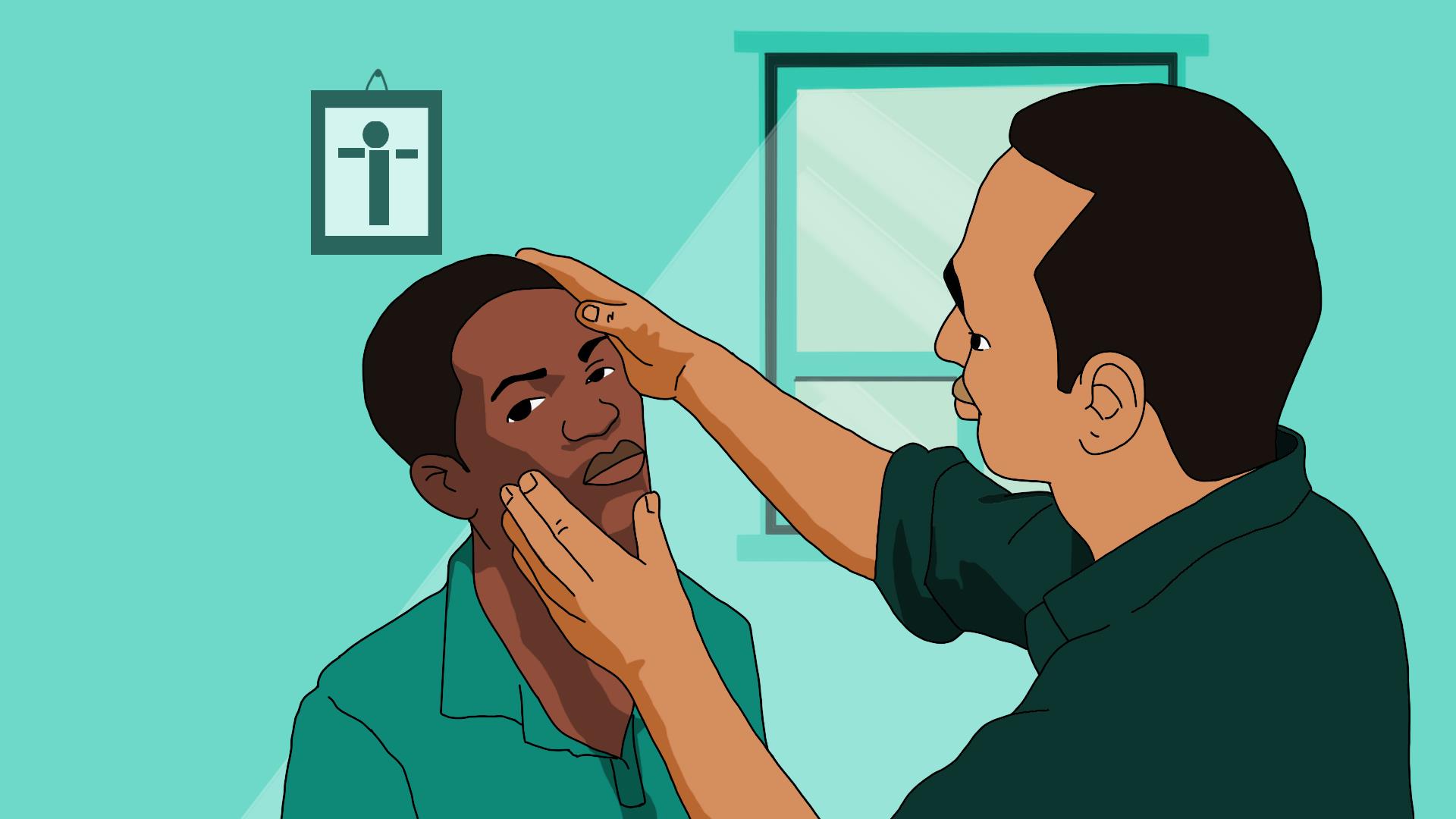🎧 Listen to: Onchocerciasis (s)

Onchocerciasis
What is onchocerciasis?
River blindness (onchocerciasis) is a disease caused by the Onchocerca volvulus worm. It spreads through blackfly bites, especially near rivers and fast-moving streams—hence the name. This disease mainly affects the skin and eyes, leading to severe itching and possible blindness.
What are the risk factors associated with river blindness?
- People living near rivers in Africa, Latin America, and Yemen.
- Residents, farmers, and missionaries in affected areas.
- Travelers are rarely at risk unless exposed to multiple bites over time.
What are the symptoms of onchocerciasis?
- Severe itching & rashes
- Bumps under the skin
- Skin thinning & discoloration
- Enlarged groin
- Eye problems (itching, cataracts, vision loss, light sensitivity)
How does it spread?
Blackflies bite infected people, pick up the parasite, and pass it to others. The worms grow inside the body over 6–12 months, causing long-term damage.
How can it be diagnosed?
Doctors diagnose river blindness by:
- Skin snips (to check for parasites).
- Mazzotti test (a patch test that triggers itching if worms are present).
The best treatment is ivermectin, taken once or twice a year. No vaccine exists yet, but control programs are reducing infections in Africa.
Prevention tip: Use insect repellent and protective clothing in affected areas!
